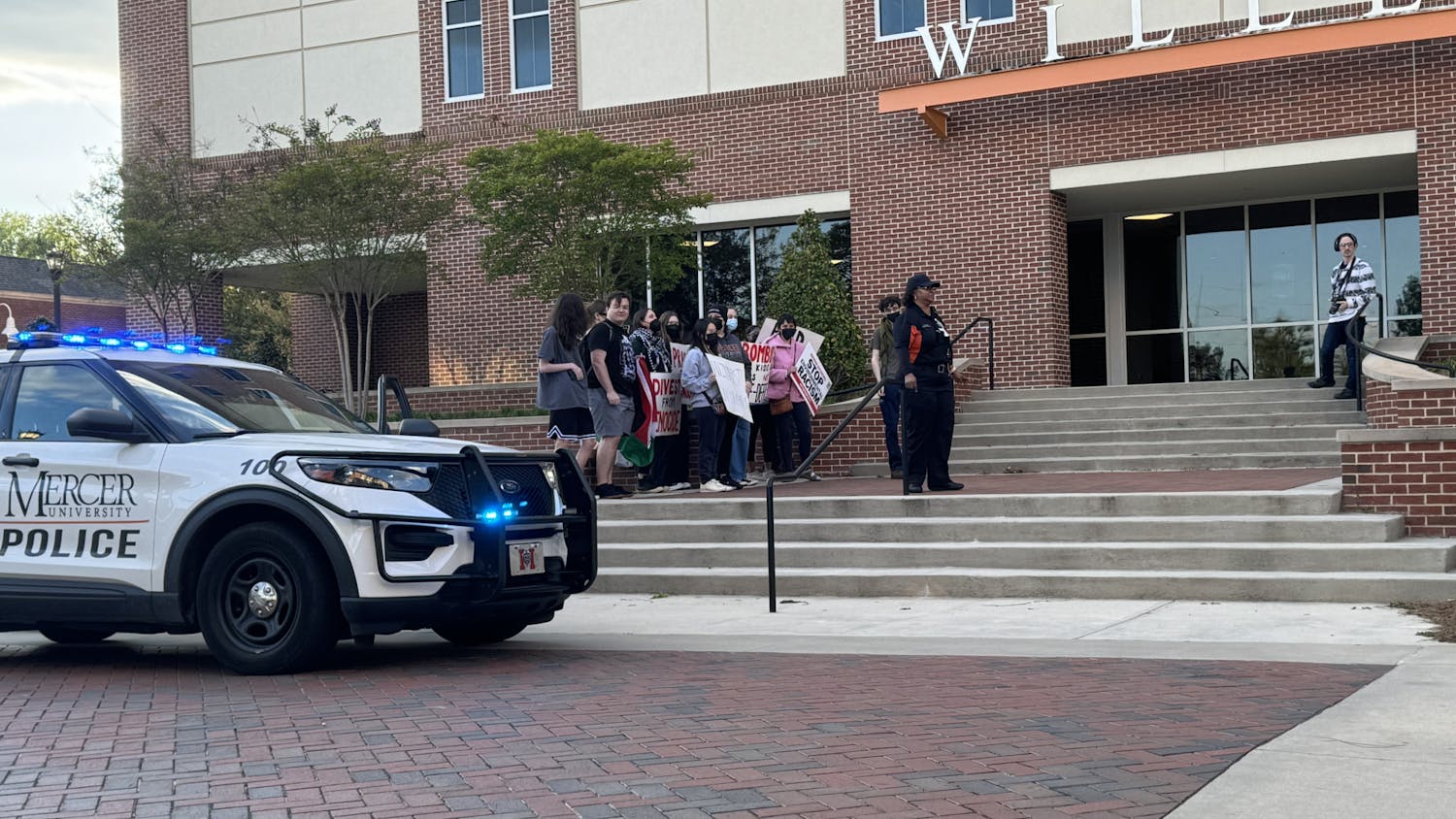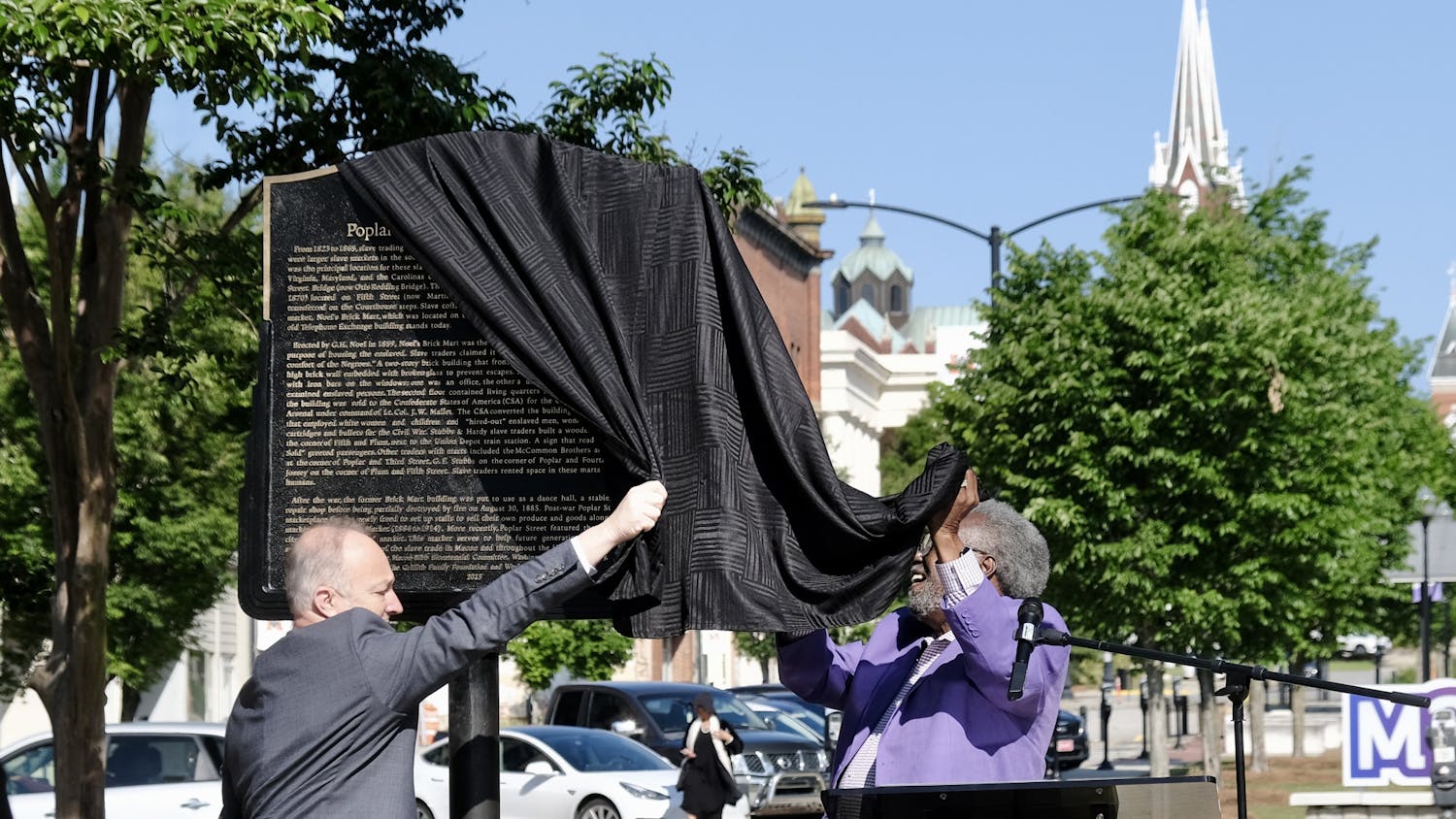Jordan Dominy, a 2004 Mercer graduate with a major in English, has published a new book titled “Southern Literature, Cold War Culture, and the Making of Modern America.” After graduating from Mercer summa cum laude, Dominy went on to earn a Master of Arts studying English from Florida State University and a doctorate in English from the University of Florida in 2011.
Dominy serves as an associate professor of English in the Department of English, Languages and Cultures at Savannah State University, where he teaches everything from first-year writing to upper-division courses for English majors.
“I teach courses mostly in composition, American literature, popular culture and cultural studies and literary theory and criticism,” Dominy said in an email to The Cluster.
It was this love for cultural studies that led to the idea of his new book.
“My book examines the role that Southern literature, and to a degree the study of Southern literature in universities, played in Cold War culture in the United States in the 20th century,” Dominy said. “This was important for the time because the United States was actively expanding its political system and interests to counter global interventions from the communists in the USSR.”
Dominy focuses on the writings of Southern authors such as William Faulkner, Eudora Welty and Walker Percy. In his book, Dominy argues that these works written by Southern authors allowed scholars of the era to discount serious political as well as social problems, particularly racism, that were prevalent during this time. By doing this, these scholars were able to say that the issues found within the United States at this time were not flaws within the U.S. political system. Instead, they were only ideas used within the novels to showcase morality and specific ideas of the authors.
This idea is what led to Dominy’s primary argument in “Southern Literature, Cold War Culture, and the Making of Modern America,” he said.
“I argue that this ultimately leads to a cultural schism that we see in our popular culture and politics today, not just as South vs. the rest of the U.S., but urban vs. rural, left vs. right, white vs. people of color and so on. South isn’t a geographic identity so much as it’s an ideological one these days, and in the book’s Epilogue, I jump ahead to recent popular texts to show that,” Dominy said.
Dominy said that this book actually was very different than what he first thought he would write.
“The idea for the book came on gradually, and it was written in phases,” he said. “A little of what I wanted to do in this book is to bring some attention to figures who need more attention, especially Lillian Smith. But another thing I wanted to do with this book is how the U.S. South had such an outsized impact in America and continues to do so today in ways that aren’t readily clear and aren’t always positive.”
With this idea of Southern ideals not necessarily being positive, Dominy said that his book tries to explore what it is to be Southern.
“I think the important take-away from my book is that we should be more critical of the label or identity of ‘Southern.’ For a long time in the context of Southern literature, it meant works by white Southerners that present their idealized visions of the region, and my book shows how that was convenient to the United States’ political ambitions during the Cold War. I hope my book is contributing to a more pluralistic and diverse vision of the region developing among scholars and professors who write and teach about the South,” Dominy said.
David Davis, associate director of the Spencer B. King, Jr. Center for Southern Studies at Mercer University, said that this ideological South that Dominy wrote about took on new meanings during the Cold War era.
“One of the most important aspects of Dominy’s book is the topic. During the Cold War, Southern culture, which had been marginalized, was appropriated as national culture. Southern music, Southern literature, Southern food and other regional products were presented as authentically American products as a way of demonstrating that the United States had an indigenous culture. This is significant because it changed the conversation about American culture from the melting pot imagine of multiple immigrant cultures to the notion of a specifically American identity,” Davis said.
These ideas of American identity are often seen today as people choose what media to consume.
“This book shows the material consequences of the cultural and textual artifacts in our lives that we take for granted. The popular culture, media and texts that surround us or that we choose to surround ourselves with shapes the realities we perceive. We should all be more aware of that,” Dominy said.
With this knowledge of how our realities are shaped by different media, Dominy said he is already working on a new book that will examine how contemporary literature and popular culture about the American South can blend fiction and fact to show authenticity.
“I want to question why we privilege authenticity? Who can claim it, and why? How does one claim it? I think that the blending of fact, fiction, realism and surrealism is a big part of it,” Dominy said.
Dominy said he plans to discuss figures such as Randall Kenan, Jon Berendy, Monique Truong, Donald Glover and Lil Nas X.
He said that his time at Mercer was instrumental in getting him to where he is now.
“I would definitely say that being at Mercer made me love college so much that I didn’t want to leave! There were so many positive influences at Mercer when I was there, but Gordon Johnston in the English department did the most in helping me find my way to being a professor. It was his joy at being in the classroom, how clearly the poem or story we were reading moved him. He pushed me harder than any other professor did. I’m grateful to count him as a friend and mentor to this day,” Dominy said.
With his new book, Dominy said he hopes to add to this love of literature, and although he does have a specific audience in mind, there are many people who will find this book interesting, Davis said.
“People interested in Southern culture and twentieth-century politics will find this book illuminating. The book helps to explain why the South is so influential in national politics and consumer culture and why Southern literature matters,” Davis said.
Dominy also said that the book can be enjoyed by many.
“The readers I have in mind are scholars, professors and students of American and U.S. Southern literature and culture,” he said. “I think any reader with an avid interest in American culture, history and politics would be interested in this book.”
Dominy left one piece of advice to Mercer students.
“Be open to new experiences. When I first arrived at Mercer, I was not open to new experiences or different ways of thinking. Mercer helped me to eventually be comfortable with those things, but I think to this day about how much more complete my Mercer education would be if I had not been so hesitant at first, especially during my freshman year,” Dominy said.
Mercer alumnus publishes book on the impact of Southern literature during the Cold War era

Jordan Dominy, Mercer alumni, has published a new book discussing the influence of Southern literature during the time of the Cold War. Photo provided by Jordan Dominy




